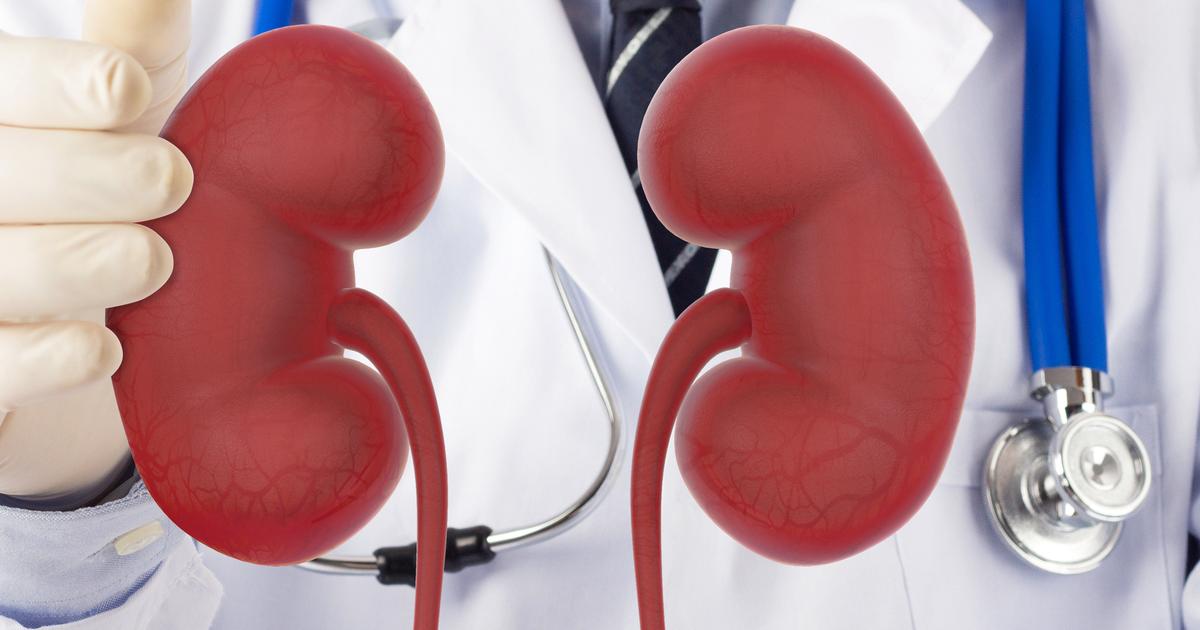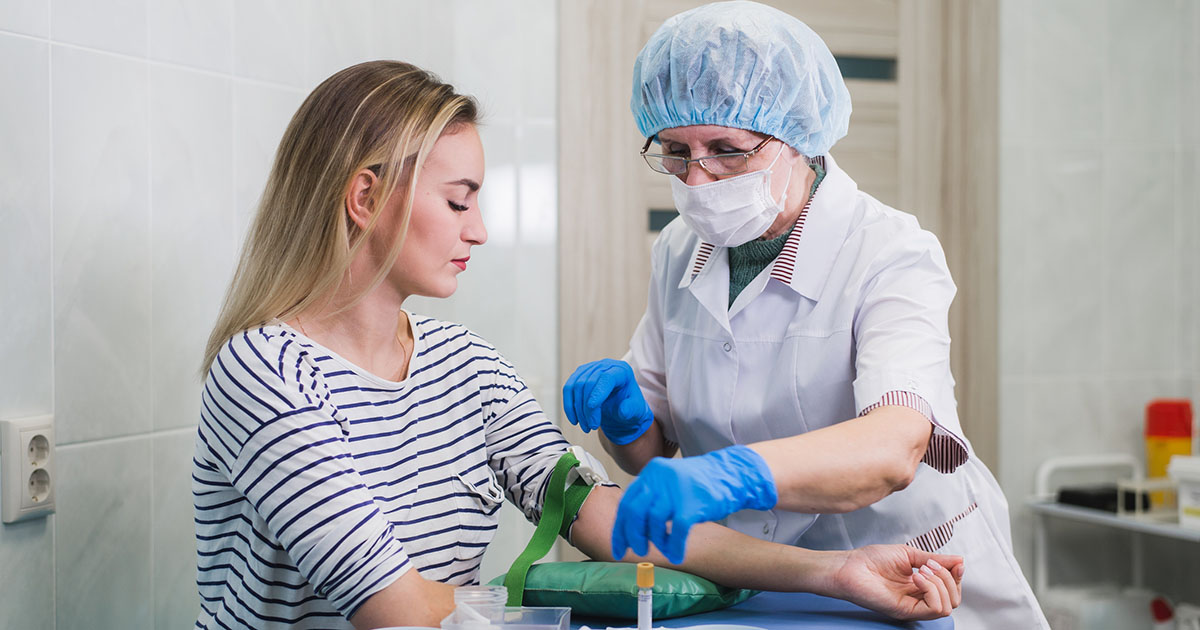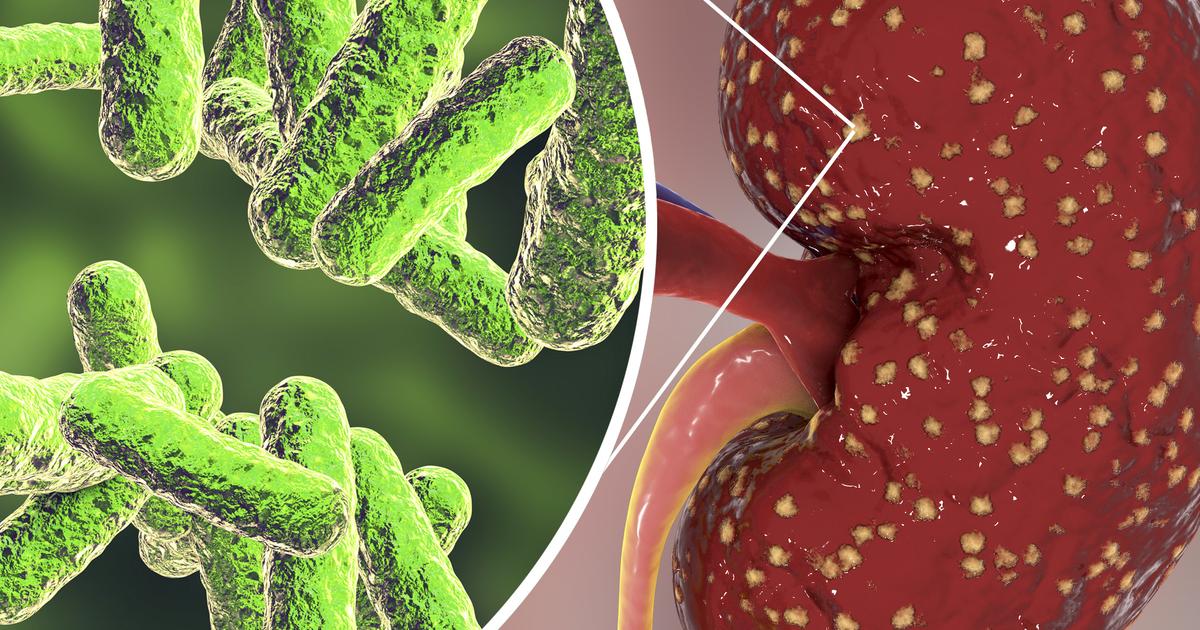What Is A Creatinine Test?
Creatinine is a chemical substance in an individual's blood that is a natural waste product of the normal functioning of the muscles in the body. Therefore, those with greater muscle mass naturally have higher levels of creatinine in their blood. Creatinine is filtered from the blood by the kidneys, which makes it a viable way to measure the function of the kidneys. Approximately 0.6 to 1.2 milligrams per deciliter of creatinine can be found in the blood of a male who has normal kidney function, while 0.5 to 1.1 milligrams per deciliter can be found in the blood of a female who has normal kidney function. The discrepancy between the normal ranges for men and women is because men have more muscle tissue on average than women do. An individual's activity level, body size, and the medications they take can also influence their creatinine levels.
Learn about what a creatinine test is now.
Purpose Of The Test

A creatinine test is most often performed to provide an individual's physician with information about how well the patient's kidneys are filtering waste and extra fluids from their blood. Millions of nephrons or tiny filter unit structures make up each of an individual's kidneys. Blood is filtered continuously through a blood vessel cluster in the glomeruli. When the number of nephrons and glomeruli are adversely affected, an individual's kidney function can decline. Symptoms that may indicate a creatinine test is needed include fatigue, appetite loss, back pain, high blood pressure, vomiting, nausea, urine output changes, urine frequency changes, facial swelling, extremity swelling, abdominal swelling, and trouble sleeping. A creatinine test may reveal conditions, including glomerulonephritis or inflammation of the glomeruli, pyelonephritis or bacterial kidney infection, urinary tract blockage or kidney stones, diabetes, congestive heart failure, dehydration, drug-induced kidney cell death, and streptococcal infections. A creatinine test can also determine whether certain medications are causing kidney damage.
Learn about preparing for a creatinine test next.
Preparing For The Blood Test

There is not much preparation needed for a blood test to determine a patient's creatinine levels. A patient undergoing a creatinine blood test should not fast, as it is not necessary. They must eat and drink as they typically would to produce a more accurate test result. An individual who is going to have a creatinine blood test should inform their physician of any prescription or over-the-counter medications they are taking at the time. The reason for this disclosure is because certain types of medications can alter the results of a creatinine test. Some medications cause an increased level of creatinine in the blood even when the patient has perfectly functional kidneys. Medications that may interfere with the creatinine blood test include cimetidine, nonsteroidal anti-inflammatory drugs like ibuprofen and acetylsalicylic acid, any chemotherapy drugs, and cephalosporin antibiotics like cefuroxime and cephalexin. A patient's physician may advise them to stop taking certain medications a few days before undergoing the creatinine test for more accurate results.
Uncover details on what to expect from the test next.
What To Expect

A creatinine blood test is administered similarly to how other blood tests are administered. A blood sample is usually taken from an easily accessible vein in a patient's inner elbow. A large rubber band-like tourniquet is wrapped around their upper arm, causing the veins to fill up with blood better. Once the nurse has found a good vein to draw from, they use an alcohol pad or another antiseptic to sterilize the area where they are going to insert the needle. A sterile needle is then used to collect one or two tubes of blood from the selected vein. The test itself is not painful, although a small prick can be felt when the needle is inserted into the skin and vein. Once the collection of blood in the vial is completed, the nurse uses a cotton ball or bandage to place pressure on the puncture as they remove the needle from the injection site. A blood draw for a creatinine test is a low-risk procedure, but some patients may experience complications that include vertigo, dizziness, fainting at the sight of blood, puncture site redness, puncture site soreness, bruising, infection, and pain.
Read about what low creatinine means next.
What Low Creatinine Levels Mean

A normal creatinine level is typically above 0.6 milligrams per deciliter of blood in females between eighteen and sixty years old. A normal creatinine level is typically above 0.9 milliliters per deciliter of blood in males between the same ages A creatinine level lower than these values is very uncommon among the population. A disease of the muscles, liver disease, and excessive water loss can all cause an individual to have low levels of creatinine in their blood. Muscle diseases like muscular dystrophy can produce muscle stiffness, muscle weakness, decreased mobility, and muscle stiffness. Liver disease that causes low creatinine can produce abdominal swelling, pale stools, abdominal pain, jaundice, bloody stools, and tar-colored stools. Individuals who have low muscle mass will naturally have lower creatinine levels in their blood, as creatinine is a direct byproduct of muscle tissue breakdown. Low muscle mass does not always indicate a serious medical issue, as it can be the result of a low-protein diet or being elderly.
Get the details on what high creatinine means next.
What High Creatinine Levels Mean

A normal creatinine level is typically below 1.3 milligrams per deciliter of blood in a male between eighteen and sixty years old, and below 1.1 milligrams per deciliter of blood in a female between these ages. A creatinine level that exceeds these values can indicate the patient is having problems with the way their kidneys are functioning. Other causes of a high creatinine level in the blood include a high protein diet, blocked urinary tract, kidney infection, reduced blood flow to the kidneys from shock, poor blood flow to the kidneys due to diabetes, congestive heart failure, and dehydration. When high creatinine levels are caused by acute kidney injury or chronic kidney injury, the level in the blood will not decrease until the underlying issue is resolved. Patients who have dialysis may have elevated creatinine levels before their treatment that decreases following their dialysis session.